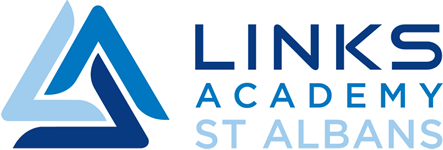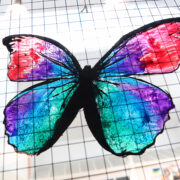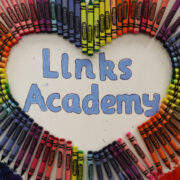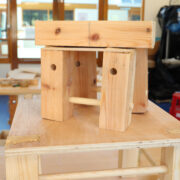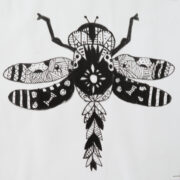This qualification is for learners aged 14-16 who wish to develop applied knowledge and practical skills in child development. It is designed with both practical and theoretical elements, which will prepare students for further qualifications in Child Care, Health and Social Care, Psychology, Sociology and Biology.
Exam Board: OCR Cambridge Nationals
Specification Number: J818
What will be studied
This two year course is divided into three mandatory units:
R057: Health and wellbeing for child development
This unit provides an overview of the roles and responsibilities of parents, and key professionals, from pre-conception through antenatal to postnatal care and EYFS. Students develop an appreciation of the importance of creating the best conditions for a child to thrive. This unit has cross curricular learning with biology including aspects of genetics, the reproductive system and foetal development. As well as developing aspects of PHSE in respect and ethical choices and opinions
R058: Understanding the equipment and nutritional needs of children from birth to five years
Students learn about the range of equipment used in children’s learning and play settings. It also helps develop an understanding of nutritional needs of children from birth to five years and the hygiene requirements of practitioners working with children from birth to five years. These are assessed through both a practical activity and in written work. This unit has cross curricular learning with cooking skills focusing on hygiene and nutrition and English with elements of comparative writing.
R059: Understanding the development of a child from from birth to five years
Students investigate the developmental norms of children from birth to five years and develop an understanding of the impact of play on the developmental norms. They apply and demonstrate their knowledge and understanding through practical activities and reflective ways to adapt and develop the skills, this includes aspects of safety and planning for a range of ages from birth to five years.
Learning Methods
Lessons are differentiated to provide personalised learning for students. Lessons will be a mixture of theory and practical and will use a variety of tools for learning and assessment, these include: Group work, independent research, practical games, quizzes, practical tasks, end of unit assessment, use of video tools for information and practical application.
Expectations of Students
Each unit has a set amount of guided learning hours to support students to achieve the most out of this qualification . There is a high expectation for students to take responsibility for their learning and independent elements of research and analysis. Due to the nature of the subjects students will support and respect each other through debates and discussions. All students are expected to attend and participate in lessons and complete all work to the best of their ability. Lessons are personalised to student’s needs and teachers will support the learning of all students throughout.
NEA units RO58 & RO59 coursework is expected to be independent work and students are asked to reference sources.
Each unit must be completed to gain a qualification in this course.
Due to the terminal rule the exam unit RO57 must be completed last.
How is the course assessed
3 assessed units:
- RO57 – 1.5 hours written examination (OCR set and marked 40%)
- RO58 – Coursework NEA (Centre assessed and OCR moderated 30%)
- RO59 – Coursework NEA (Centre assessed and OCR moderated 30%)
What websites are recommended
www.bbc.co.uk/education/clips/zsrg9j6
www.nhs.uk/change4life/Pages/change-for-life.aspx – NHS website contains lots of useful information for each unit of this course.
What equipment is needed
Equipment for all practical elements of this course will be provided to the students
Career Paths/Next Steps
This course offers a Level 1 and 2 qualification in Child Development. Students can continue their studies of Child Development through an apprenticeship or a college placement.
A variety of career paths are available to those students wishing to pursue a career in this field, these include:
- Nursery Nurse
- Nurse
- Midwife
- Health Visitor
- Paediatrician
- Early Years Teacher
- Teaching Assistant
- Child Psychologist
- Education Psychologist
- Speech and Language Therapist
- Play Therapist
